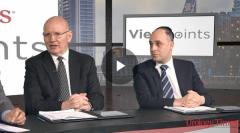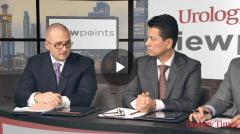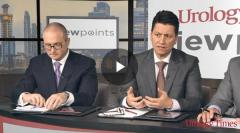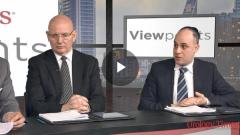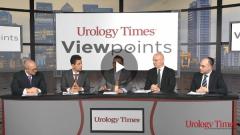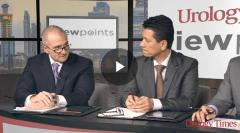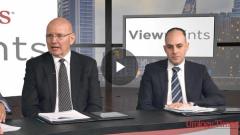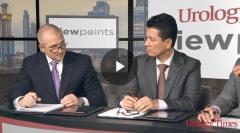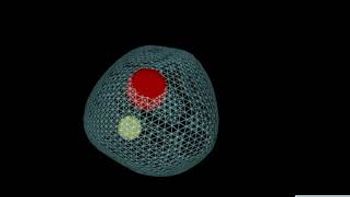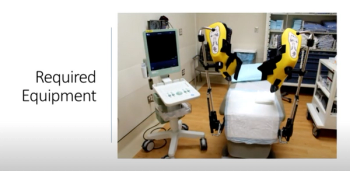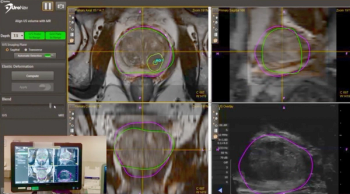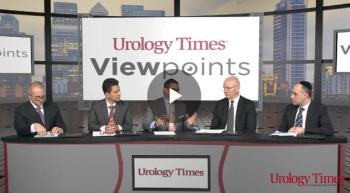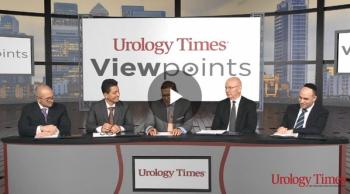
Cardiovascular Risk Related to ADT Therapy in Prostate Cancer
Episodes in this series

[Transcript]
Raoul Concepcion, MD, FACS: The other thing that we’re obviously seeing a tremendous amount of interest in-from a research standpoint, from an observational standpoint-as Jahan mentioned, are the toxicities related to androgen deprivation therapy [ADT], short term and long term. When we started using LHRH analogues, we said, “Oh, this is an easy drug. It’s better than getting castrated. But now, over time, we’ve recognized some really, potentially serious adverse effects. Gordon, 1 of the things I think people are really interested in-and it’s just not getting enough attention-is the potential increased cardiovascular [CV] risks associated with LHRH agonists versus antagonists.
Gordon Brown, MD: Yeah, it’s an interesting question. I think it’s a very important question because as urologists, historically-to your point-we’ve utilized these drugs. I don’t want to say we’ve used them with abandon, but with much less concern than we probably should have. There have been some recent data published in The Journal of Urology from a group in Israel that looked at a randomized trial of antagonists versus agonists. It was a very small patient population. Their end point was, actually, looking at endothelial dysfunction and whether you got an antagonist or whether you got an agonist.
In that report, their primary end point was not met, but they did look at secondary end points of increased risk of cardiovascular events. And what they reported out was there was a 20% risk of cardiovascular events in the agonist group when compared with the antagonist group, suggesting that potentially from a mechanism-of-action perspective, those patients in the agonist group were at highest risk or higher risk for CV events.
Obviously, this is something that’s going to have to be played out and proven in randomized clinical trials. But it does call into question our need to monitor these patients more effectively and even to prospectively risk stratify them into patients who might be at highest risk prospectively for events during their course of therapy and potentially even engage a cardiac oncologist during their care.
Raoul Concepcion, MD, FACS: And it happens pretty quickly.
Gordon Brown, MD: It does.
Raoul Concepcion, MD, FACS: I mean, that was the 1 thing that that study…
Gordon Brown, MD: This was the study of the year.
Raoul Concepcion, MD, FACS: Right.
Gordon Brown, MD: One year follow-up.
Raoul Concepcion, MD, FACS: Those events happened within a year. Jahan, you’ve got a pretty big hematology-oncology group in New York, as Gordon mentioned, and a few academic institutions have brought on cardio-oncologists. Clinically, are you doing that? And I guess more important, should we be really looking at risk factors, vis-Ã -vis with history of cardiovascular disease, hypertension, and diabetes, before making a decision at the institution of ADT and who should get an agonist and who should get an antagonist?
Jahan Aghalar, MD: Within the prostate cancer realm, we have not been using cardio-oncologists in particular. We’ve been reserving that subspecialty mainly in patients who are going to be receiving anthracycline-type chemotherapies and women with breast cancer. In terms of prostate cancer, my goal is to ensure that the patient in the room understands that their cancer diagnosis does not mean they only have to follow their oncologist, or their urologist, or their radiation oncologist and that’s it.
On the contrary, if anything, they already have a good relationship with their primary care physician. They need to make sure that they continue that relationship and go there for their annual or perhaps even biannual checkups to monitor their lipids, blood pressure, and blood sugar. If they have a cardiac history, that’s more reason to make sure that they are being compliant with the medical therapies that they are on. That’s a very, very important topic that I go over with all my patients at the initiation of androgen deprivation therapy, letting them know that I’m very confident that we’re going to be able to be controlling their cancer going forward with the hormonal therapy that we’re going to be providing. At the same time, we have to keep in mind that there is a real risk to their heart health that we can’t ignore.
Panelists:
- Raoul Concepcion, MD, FACS, Vanderbilt University School of Medicine, Nashville, Tennessee
- Jahan Aghalar, MD, Board-certified Hematologist and Oncologist, New York, New York
- Gordon Brown, MD, Rowan University School of Osteopathic Medicine, Glassboro, New Jersey
- Jorge Garcia, MD, Cleveland Clinic, Cleveland, Ohio; Jonathan Henderson, MD, Regional Urologist, Shreveport, Louisiana
- Paul Sieber, MD, Penn Medicine Lancaster General Hospital, WellSpan Ephrata Community Hospital, Lancaster, Pennsylvania
Newsletter
Stay current with the latest urology news and practice-changing insights — sign up now for the essential updates every urologist needs.

